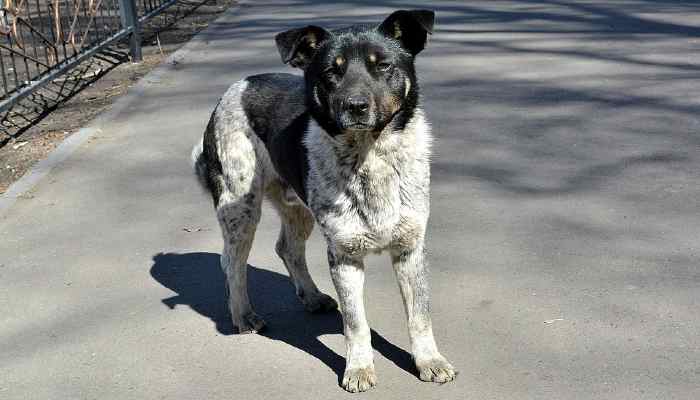Arthritis and joint pain are common health issues that affect senior dogs. Arthritis is a degenerative condition that affects the joints and causes inflammation, stiffness, and pain. It can be caused by age, injury, or infection and is more prevalent in larger breeds of dogs. Understanding the causes, symptoms, and treatment options for arthritis and joint pain can help ensure that your furry companion lives a happy and comfortable life in their golden years.
Arthritis is caused by the breakdown of cartilage in the joints. Cartilage is a smooth, rubbery substance that cushions the bones and allows them to move smoothly. As dogs age, the cartilage in their joints can wear down, leading to inflammation, stiffness, and pain. Other factors that can contribute to the development of arthritis include injury, infection, and genetics.
Symptoms of arthritis in senior dogs include limping, reluctance to move, stiffness, and difficulty getting up or lying down. Dogs with arthritis may also be less interested in playing and may be less tolerant of being touched or picked up. In severe cases, dogs may become depressed or aggressive due to the pain.
Medication
Giving medication is a common treatment option for managing arthritis and joint pain in senior dogs. Non-steroidal anti-inflammatory drugs (NSAIDs) such as carprofen and meloxicam are commonly used to manage arthritis in dogs. These medications work by reducing inflammation and pain in the joints.
Corticosteroids are another type of medication that can be used to manage arthritis and joint pain in senior dogs. These medications work by reducing inflammation and pain in the joints. They are usually administered by injection and can provide fast relief from pain and inflammation. However, long-term use of corticosteroids can have side effects such as increased appetite, thirst, and urination, weight gain, and the potential for developing diabetes or Cushing’s disease.
Glucosamine and chondroitin are supplements that can also be used to help manage arthritis and joint pain in senior dogs. These supplements work by helping to slow the progression of arthritis and reduce pain. They are often used in conjunction with NSAIDs or corticosteroids.
It’s important to note that every dog is different and what may work for one dog may not work for another. It’s important to work closely with your veterinarian to determine the best course of treatment for your dog, and to monitor your dog’s response to the medication.
Physical Therapy
Physical therapy is a treatment option that can be beneficial for senior dogs with arthritis and joint pain. It includes exercises to improve joint mobility and muscle strength, as well as hydrotherapy, which uses water to provide resistance and support. Regular exercise can help maintain muscle mass, improve joint mobility, and reduce pain. However, it’s important to keep in mind that senior dogs with arthritis may have limited mobility and may not be able to tolerate the same level of exercise as younger dogs.
Range of motion exercises are a type of physical therapy that can be beneficial as these involve gently moving the joints through their full range of motion to help maintain joint mobility and reduce pain. Examples of range of motion exercises include flexion and extension exercises, and circular motions.
Strength-training exercises involve using resistance to build muscle mass and support the joints. Examples of strength-training exercises include resistance band exercises, weight-bearing exercises and balance exercises.
Hydrotherapy is another beneficial activity, it involves using water to provide resistance and support. This type of therapy can be done in a pool or using a special underwater treadmill. Hydrotherapy can help improve joint mobility and reduce pain, as well as promoting cardiovascular fitness.
Weight Management
Weight management is an important aspect of managing arthritis and joint pain in senior dogs. Being overweight puts extra stress on the joints and can worsen arthritis symptoms. Maintaining a healthy weight can help alleviate pressure on the joints and reduce inflammation, thereby improving mobility and reducing pain.
One of the most effective ways to manage weight in senior dogs with arthritis is through diet and exercise. Feeding a diet that is appropriate for your dog’s age, breed, and activity level can help maintain a healthy weight. Many veterinarians recommend a diet that is high in protein and low in fat to help maintain muscle mass and support weight loss. Feeding smaller, more frequent meals throughout the day can also be beneficial for senior dogs with arthritis.
Exercise is also an important for senior dogs with arthritis as regular exercise can help maintain muscle mass and support weight loss. However, keep in mind that senior dogs with arthritis may have limited mobility and may not be able to tolerate the same level of exercise as younger dogs.
Walking and swimming are both low-impact forms of exercise that can be beneficial for senior dogs with arthritis. Walking provides gentle exercise and can help maintain muscle mass and support weight loss as well as swimming, which is another a great option as it provides a low-impact form of exercise that is easy on the joints.
It’s also crucial to keep in mind that weight management can be a gradual process that calls for persistence, patience, and close collaboration with your vet to keep an eye on your dog’s weight, bodily condition, and diet.
Surgery
While medicine and physical therapy can help manage these symptoms, surgery may occasionally be required to provide your dog relief. Senior dogs with arthritis and joint pain frequently consider surgery as a last option, yet it can significantly reduce pain and enhance quality of life.
The most common surgical procedures for managing arthritis and joint pain in senior dogs are joint replacement and joint fusion. Joint replacement surgery involves removing the damaged joint and replacing it with a prosthetic joint. This type of surgery is usually done on the hip or knee and is most commonly performed on large breeds of dogs. Joint replacement surgery can provide significant relief from arthritis pain, but it does require a significant recovery period and a lifetime of management
Joint fusion surgery, also known as arthrodesis, is a procedure where the bones that make up the joint are fused together. This procedure is typically done on the spine, elbow, or ankle and is most commonly performed on smaller breeds of dogs. Joint fusion surgery can provide significant relief from arthritis pain, but it does limit the range of motion in the affected joint.
Another surgical option is the removal of a damaged joint, this is also known as arthroectomy. This procedure is typically done on the shoulder, elbow, or ankle and is most commonly performed on smaller breeds of dogs. Joint arthroectomy can provide significant relief from arthritis pain, but it does limit the range of motion in the affected joint.
While these surgical procedures can significantly reduce arthritis pain, it is crucial to remember that they come with a lengthy recovery period and require ongoing management. It’s also crucial to keep in mind that not all dogs are good candidates for surgery, and before advising surgery, your veterinarian will take age, general health, and the severity of the arthritis into account.
It is important to note that while these treatments can help manage arthritis and joint pain, they cannot cure the condition. However, with proper treatment, most dogs with arthritis can lead comfortable, active lives. It’s also important to work closely with your veterinarian to develop a treatment plan that is tailored to your dog’s specific needs.
In addition to the above treatments, there are also some things that you can do at home to help manage arthritis and joint pain in your senior dog. Providing a comfortable and supportive bed to sleep on, using ramps or steps to help them navigate stairs, and avoiding hard or slippery surfaces can help make your dog’s daily life more comfortable.
In conclusion, arthritis and joint pain are common health issues that affect senior dogs. Understanding the causes, symptoms, and treatment options can help ensure that your furry companion lives a happy and comfortable life in their golden years. With proper management, most dogs with arthritis can lead comfortable, active lives, however it is important to work closely with your veterinarian to develop a treatment plan that is tailored to your dog’s specific needs.




